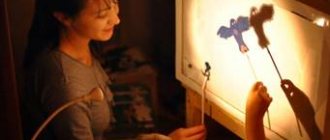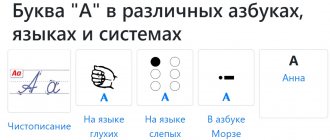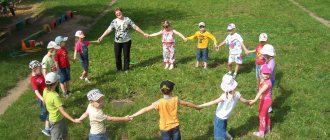business, product, capital, profit, taxation, entrepreneurship
The mystery of the old coin New!
1. Museum of Money 2. How much grapes cost 3. How not to trade 4. How to sell toys 5. How to help your sister Good and glory to Russian merchants New! Stroganovs, Morozovs, Tretyakovs, Shchukins, Mamontovs, Abrikosovs, Ledentsovs, Eliseevs, Filippovs... 1. “What are you guests bargaining with?” <…> 5. Such different good About visible and invisible money and the “vegetable gardens” where they grow 1. How they changed in the old days 2. How salt and stones pretended to be money<...> 11. “Vegetable garden” for money 12. The ABC of money
A sail for the state, or About taxes in the past and present 1. Someone is asking for your money 2. Shall we abolish taxes? <…> 7. Tales of Peter the Great 8. Cheese from unpaid taxes 9. Air taxes<…>
Basics of financial literacy for schoolchildren
At school age, a child directly encounters the world of money. Pays for lunch in the canteen and transportation, and receives pocket money. Therefore, an important task is to develop a reasonable attitude towards money in a child:
- Discuss the amount of pocket money in advance with your child.
Plan where and what they will go for. Explain that if the child buys ice cream with this money, he will not have enough for travel.
- Have a conversation about protecting money
What to do if someone at school starts extorting money from a child and how best to store it so as not to accidentally lose it.
Make sure that no one threatens the safety of your child or extorts money in your absence. Always know where the student is, listen to what is happening around and quickly contact to help in time using the “Where are my children” application.
- In order for your child to learn how to manage personal finances, draw up a financial plan with him, where all income and expenses will be listed.
You can start with a plan for a month, then for six months and a year.
- The child should know that there are goods that he should never buy, even if someone asks him to do so.
These include cigarettes, alcohol and smoking mixtures.
- Primary school teachers advise against giving large sums of money to students at school, since children at this age do not yet know how to handle money with care and often leave it unattended in a visible place. For example, in an open pocket of a backpack or on a desk.
- Involve your son or daughter in discussing the family budget, planning major purchases and vacations. Together, discuss possible ways to save and cut costs.
- Children's bank cards are now becoming popular (SberKids, Tinkoff Junior, Alfa-Bank children's card and others)
Using such a card, a child can independently pay for travel, meals in the canteen and make purchases in a store. Moreover, all transactions on the card are controlled by parents.
If you decide to buy a child card for your child, make sure that he knows how to use it correctly.
We recommend that all parents who are thinking about getting such a card for their child read detailed material about the nuances of choice, opportunities and dangers - Children's bank card: is it worth getting it, where and at what age?
- Do not reward your child's good performance with money. Do not arrange market relations where there is love and trust.
- Give your child a piggy bank so that he can save money for the thing he needs.
- Help children develop economic thinking
Solve problem situations, play financial games, read educational stories with your child. You will find out what materials will help you with this in the next section.
Development of an economics lesson for 1st grade on the topic “What is economics”
Lesson 1, 2
Development of an economics lesson for 1st grade
| Lesson topic: What is economics? The purpose of the lesson: Update and systematize the information children have about economics Tasks:
|
Equipment:
interactive equipment, Flash player.
Lesson methods:
verbal, visual, practical work.
During the classes:
I. _ Motivation:
- monitoring student readiness;
- psychological preparation.
II . Message of the topic and purpose of the lesson:
- educational and cognitive goal is to familiarize students with the idea of economics as a way of farming and the science that studies the rules of farming;
- the practical goal is to apply the acquired knowledge in practice.
III . Presentation of new material.
During the conversation, introduce a new concept “Economy”.
Economy -
translated from Greek
oikos
- household and
namos
- law.
In the literal sense, this term is interpreted as an economy conducted in accordance with laws, rules, and regulations. (Slide No. 2).
The birth of the economy.
The economy was born approximately 10 thousand years ago in Ancient Mesopotamia. Here, in a fertile and warm valley between the Asian rivers Tigris and Euphrates, people began to actively engage in agriculture.
This meant that instead of collecting fruits and plants, which they had been accustomed to for many millennia, they began to consciously grow them in their fields. And instead of hunting domestic animals, people tamed them and began to herd them. (Slide No. 3).
All of these changes led to an increase in the amount of food that families provided for themselves.
In other words, society then for the first time managed to solve the most complex and important economic problem - the use of the tools and natural resources at its disposal with greater results than before. This success changed the way people lived. They finally had the opportunity to live in one place without fear of hunger. Moreover, when food became more abundant, the number of children in families increased, and mortality from hunger and diseases caused by malnutrition decreased. (Slide No. 4).
The increased number of workers allowed people to begin to share responsibilities among themselves: some began to grow plants, others to care for livestock, others to make the tools necessary for farmers and cattle breeders, and others began to produce dishes and household items.
Gradually, in some settlements there were more artisans than peasants. This is how the first cities were born. (Slide No. 5).
In Ancient Greece, farming was mainly subsistence, domestic, so the economy of that period was home economics, i.e. the art of housekeeping. (Slide No. 6).
The ancient Greeks succeeded not only in housekeeping, but also in various crafts.
In the center of every Greek city there was a main, or market, square. It was the center of business life, here townspeople exchanged experience in running the economy and discussed pressing economic problems. People also traded in the market squares. Fish and meat were often laid out on marble tables, which kept the food cool. (Slide No. 7).
In every city of Ancient Greece up to the 4th century BC. had their own coins. However, merchants who conducted their business in other cities exchanged money with money changers. The money changers took a fee for this and often had such an income that they could lend money. The money changer sometimes helped people who had excess money. He could find a suitable business for them that was worth investing in and paid them a certain percentage of the income. In fact, these money changers were the very first bankers on our planet. (Slide No. 8).
To formulate that in the modern understanding, the definition of economics has three main meanings:
- Economy
is a set of production relations that arise between participants in production.
- Economy
- the economy of a separate region, country, group of countries, the whole world, including different types of production or part of it.
- Economy
– a scientific discipline that studies various aspects of economic relations. (Slide No. 9).
Guys, why do we need to develop the economy?
People create and develop the economy in order to create the goods they need for convenience, comfort, joy, because with the help of goods people satisfy their needs.
Good is everything that a person uses to satisfy his needs.
(Slide No. 10).
What is good?
All the items that you are used to and that help make your life interesting, rich, and safer are a blessing. (Slide No. 11).
A good can be an object that a person:
- Wears (jeans, T-shirt, sneakers).
- Eats (candy, apple, bread).
- Uses for his personal purposes (radio tape recorder, TV, computer). (Slide No. 12).
Thankfully
there may be a state of the environment if it gives a person pleasure: (Slide No. 13).
In the course of economic activity, people's knowledge about the properties of materials developed, based on the development of science and technology, the ability to use them was developed, which always contributed to the creation of a new generation of economic benefits, which once again made human life safer.
Society
is
a collection of people united by historically established common goals, interests, and joint activities
.
(Slide No. 15).
Family
is a group of people living together, having common interests and leading a joint household. (Slide No. 16).
Household
- This is a collection of household items necessary for the life of all family members. (Slide No. 17).
IV .
Practical work.
No. 1 Game. "Pantry of letters."
Make up economic concepts from the available letters: m, o, b, e, b, x, i, k, a, z, t, n, i, sch, e, s, v, th
(Slide No. 18).
№2 Game. "Cryptographer".
Unscramble the words and explain their meaning.
- Osvyatkhose
- Generosity
- Myasie
- Akonz
- Imakoeno
- Otpierrebotmn
(Slide No. 19).
V. _ The final part of the lesson.
Questions for the class:
- What economic problems did you take part in solving?
- What economic terms have you heard?
- What kind of economic activity do your parents and acquaintances deal with?
(Slide No. 20).
Summing up the lesson.
2




